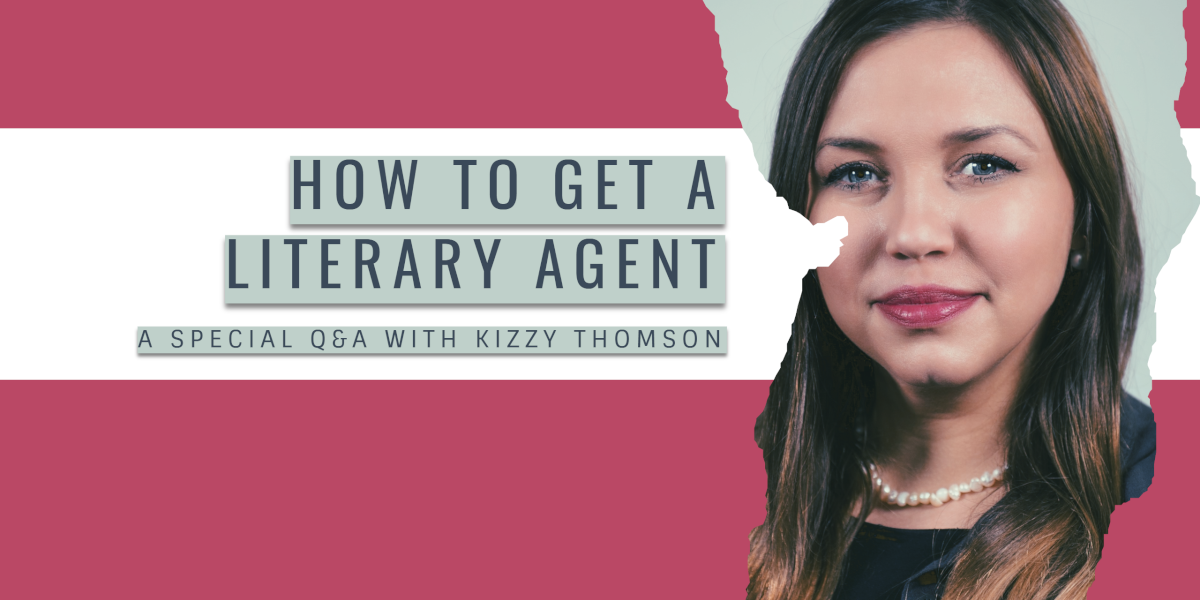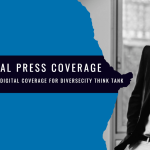
Palamedes (P): What does a literary agent do, and how can they help aspiring authors and publishers in the book industry?
Kizzy Thomson (KT): A literary agent serves as a bridge between authors and publishers in the book industry. They play a pivotal role in discovering and nurturing literary talent, helping authors refine their manuscripts, and securing book deals with publishers. Literary agents provide valuable guidance on market trends, manuscript editing, and contract negotiations. They are advocates for their clients, working to maximise their opportunities and income in the publishing world. For aspiring authors, literary agents provide expertise, industry connections, and a better chance at getting published.
P: Is there still such a thing as a “slush pile,” and if so, what is it, and how does it work in traditional publishing?
KT: Yes, the dreaded “slush pile” still exists in traditional publishing. It refers to the unsolicited manuscripts that publishers receive from aspiring authors. These manuscripts are typically unsolicited, meaning they aren’t submitted through a literary agent. In traditional publishing, junior staff or interns often review the slush pile submissions to find hidden gems. However, the vast majority of manuscripts from the slush pile are rejected, as the competition is fierce. Literary agents help authors bypass the slush pile by submitting their work directly to publishers, increasing the chances of getting noticed.
P: How do literary agents decide which manuscripts to represent, and what criteria do they use to evaluate potential clients?
KT: We evaluate manuscripts based on several criteria, including writing quality, marketability, uniqueness, commerciality, and the author’s existing marketing efforts. Lit agents look for compelling storytelling, well-developed characters, and a strong narrative voice. Market potential is crucial, so agents consider whether the book fits current trends or has a unique angle. An author’s platform, including their social media presence, media coverage, and speaking engagements, also factors in. Agents often seek authors with the potential for long-term success so authors whose books could be developed into a series or, better, adapted for TV or the big screen, are prized assets.
P: What qualities or elements make a manuscript more attractive to publishers and increase its chances of getting a book deal?
KT: Publishers are attracted to manuscripts that are well-written, original, and have a clear target audience. A unique concept or fresh perspective can set a manuscript apart. Additionally, a strong author platform and a well-crafted query letter can enhance an author’s chances of getting noticed. Meeting genre and market trends, while still offering a fresh take, is also important.
P: Can you explain the process of selling a manuscript to a publisher? What steps are involved, from submission to signing a contract?
KT: It varies from publisher to publisher but the process typically involves these same steps:
Query/Pitch: The author’s literary agent submits a query letter and sometimes sample chapters to publishers who might be interested. We’ll have a good idea about what publishers will be interested because we speak to (and often meet) commissioning editors at least once a year to find out what they’re hoping to find for the year or years ahead. The initial pitch, which may be formal or informal depending on the agent’s relationship with the recipient commissioning editor, is really important because it serves to pique interest.
Submission: If a publisher is interested, they request the full manuscript.
Review: Editors and other staff, including marketing teams, read and evaluate the manuscript.
Offer: If a publisher is interested, they make an offer, which includes advance payment (if any), royalties, and contract terms.
Negotiation: The literary agent negotiates the contract terms on behalf of the author. This can be a quick or painfully slow process depending on the author’s expectations.
Signing: Once both parties agree on the terms, the author signs the publishing contract.
Editorial Process: The author works with an editor (or editors) to refine the manuscript and may also have a part to play in the book’s cover design.
P: What are the key factors that influence a literary agent’s decision to take on a new author or manuscript?
KT: The key factors include the quality of the writing, market potential, the author’s platform, and the manuscript’s uniqueness. Agents also consider whether the author is a good fit for their agency and if they have the potential for a successful long-term career. The majority of agents specialise in (or at least prefer dealing with) a finite number of genres – in my case mostly non-fiction in the areas of business, self-help and personal development and inspirational memoirs – and won’t accept new authors outside of these genres unless their work is extra special or they know it can be sold quickly.

“Many new authors write their books for such a wide audience that, in the end, they appeal to no one. Focusing on a specific target audience and writing in a blinkered way to appeal to those people are really important.”
– Kizzy Thomson
P: How do literary agents typically handle rejection from publishers, and what strategies do they employ to navigate setbacks?
KT: Rejection is a common part of the publishing process for authors and for us agents! Literary agents provide emotional support to authors and offer constructive feedback to improve the manuscript. They may also reevaluate submission strategies or consider alternative publishers. Persistence and a focus on the long-term goals are essential. Thick skin comes in handy, too!
P: Are there specific genres or types of books that are currently in high demand in the publishing market, and how do agents stay informed about these trends?
KT: Agents stay informed about market trends through industry publications, attending conferences, networking with publishers and editors, and monitoring bestseller lists. While trends can shift, genres like thrillers, romance, and diverse voices often remain popular. However, the market is diverse, and unique voices can find success in various genres. Conversations with commissioners ensure that we have a pretty good idea what publishers are looking for what types of book.
P: What are the common pitfalls or mistakes that authors make when seeking representation from a literary agent, and how can they avoid them?
KT: Common pitfalls include submitting unfinished manuscripts, not researching the right agents, and submitting to agents who don’t represent their genre. To avoid these, authors should complete their manuscripts, research agents carefully, and tailor query letters to each agent’s specific interests.
Aside from these mistakes, many new authors write their books for such a wide audience that, in the end, they appeal to no one. Focusing on a specific target audience and writing in a blinkered way to appeal to those people are really important.
P: Could you explain the role of a literary agent in negotiating book deals, including advances, royalties, and other contract terms? And what about TV rights?
A literary agent plays a crucial role as the author’s representative throughout the negotiation process and the deal-making phase. Our initial objective is to secure an offer from a publisher, and once we’ve achieved that, we work closely with the publisher to enhance the offer in any way possible. This includes negotiations related to TV rights and subsidiary rights. We address these matters before delving into the contract stage.
After ensuring that the author is content with the terms, literary agents then focus on making sure that the contracts are robust and provide the maximum benefit and protection for the author. Once the agreement is signed, the literary agent steps back from the process.
Subsidiary rights, as mentioned earlier, refer to the rights that allow for the sale of an author’s work on their behalf. If an author doesn’t retain rights related to TV, radio, or any form of dramatization, the publisher typically offers a royalty split. For instance, a common arrangement is a 50-50 split for TV or film rights. However, it’s usually advisable for the author to specify which rights they wish to retain. It’s in the author’s best interest to hold on to any rights that the publisher does not plan to utilize or sell, as this will minimize the agent’s fee from the total income generated by these rights.
Sometimes, the agent will actively pursue subsidiary rights, depending on the author’s trajectory and the potential for their work to be adapted into TV or film. Often, it makes sense to wait until the book has been published and the author’s platform is still growing before exploring these opportunities. Additionally, someone in the industry might facilitate introductions to TV or film companies, especially after the author has signed a worldwide deal with a publisher. The likelihood of TV companies expressing interest and making offers may depend on how the book is performing and its sales figures.
The advance offered to an author typically depends on the number of offers they receive. More offers often result in a higher advance. If the agent conveys that the author wrote the book with a specific publisher in mind, there may be limited room for negotiation, leading to a smaller advance. Advances are essentially upfront payments against future royalties and serve as a way to compensate the author for their time, particularly in non-fiction writing.
Advances for authors, unless they are celebrities or tackling a highly popular topic, generally range from a couple of thousand dollars upward to five figures, and they are considered on a case-by-case basis. Authors are not typically required to repay the advance if the publisher fails to sell the books. This risk is assumed by the publishers, and the advance may only need to be repaid if there is a contractual breach or the author fails to deliver the manuscript, although such situations are rare.
Regarding royalty rates, agents typically prefer to see a hardback book start with a royalty rate of around 12 percent, while a paperback might start at 10 percent. In the ebook industry, the standard royalty rate is around 25 percent, and this rate is less likely to change unless an author is selling a significant number of copies or has considerable leverage with multiple publishing offers. For in-house audio rights, the starting royalty rate is generally around 20 percent, but this can vary depending on the specific circumstances of the deal.
P: What is the typical timeline from signing with a literary agent to the publication of a book, and how much input does an agent have in the editorial process?
KT: The timeline varies but can range from one to several years. The agent’s input in the editorial process depends on the publisher and author’s needs and the publisher’s process. Some authors – especially seasoned ones – require extensive editing, while others need minimal changes.
P: Are there differences in how literary agents work with established authors versus debut authors, and what can new authors expect when they first start working with an agent?
KT: Agents tailor their approach to each author’s needs. Established authors may have different goals and contract terms than debut authors. New authors can expect guidance on manuscript development, career strategy, and navigating the publishing industry.
Authors and lit agents invariably become quite close given the time and frequency they correspond. Many author-agent relationships last a lifetime and the pitching and sales process gets easier and easier over time.
P: How do literary agents approach the task of finding the right publisher for a manuscript? Does the agent deal with one commissioning editor or with many? And do literary agents send a manuscript to numerous publishers at the same time on what amounts to a first come, first serve basis?
KT: Agents have industry connections and knowledge to target the right publishers and editors for a manuscript. They often submit to multiple publishers simultaneously to increase the chances of securing a deal. The process involves working with various commissioning editors at different publishing houses.

“My advice is to avoid self-publishing until you’ve explored the possibility of reaching out to literary agents and traditional publishers”
– Kizzy Thomson
P: Can you provide insights into the current state of the publishing industry and how it has evolved in recent years, especially in terms of digital publishing and self-publishing? Is there still a need for agents, for example?
KT: The publishing industry has evolved with digital and self-publishing options, but traditional publishing remains strong. Agents are still valuable because they offer expertise, industry connections, and negotiation skills that authors may lack. I can’t see the role of an agent changing hugely until such a time that major publishers stop using us. Such disruption, however, is unlikely because we act as helpful gatekeepers. And without us, the slush pile would be enormous and sorting through it to find a diamond in the rough would be untenable.
P: What are some strategies authors can use to build their platform and increase their chances of attracting the attention of literary agents and publishers?
KT: Authors can build their platform by actively engaging on social media, blogging, attending writing conferences, and networking with other authors. Publishing short stories or articles can also help establish credibility. Book PR agencies like Palamedes, which offer pre-publication marketing, are invaluable.
P: What is the typical commission structure for literary agents, and how do they get compensated for their services?
KT: Agents typically earn a commission of around 15% on an author’s earnings, including on any advances and royalties. They receive this commission when the author gets paid by the publisher.
That may sound a lot but remember that agents don’t get paid at all in advance (or, at least, reputable ones don’t) and the amount of time and resources that go into each project are considerable. Even a 15% commission doesn’t always cover that unless the book happens to sell really well, so there’s a lot of risk and trust on our part.
P: Do bestselling and celebrity authors have the veto over their book cover designs and book content, or do they – like everyone else – have to accept that the publisher’s word is final?
KT: Bestselling and celebrity authors often have more influence in cover design and content decisions, but ultimately, it depends on the contract and publisher. While they may have input, the publisher’s final decision is usually binding.
P: Are there ever any instances of bidding rights where multiple publishers will vie to get a deal?
KT: Yes, bidding wars can occur when multiple publishers are interested in a manuscript. This competition can drive up advances and lead to more favourable contract terms for the author.
P: How does someone actually become a literary agent? And how would a new agent go about finding who to speak to in mainstream publishers?
KT: Becoming a literary agent typically involves gaining experience in the publishing industry, developing a network of contacts, and building a deep knowledge of the book market. Many agents start as interns or assistants in literary agencies or publishing houses. Networking at industry events and joining professional can help new agents connect with publishers and authors. Building a strong list of authors and successfully negotiating book deals will further establish their reputation in the industry.
For the most part, being a literary agent is entirely non-glamourous and involves, as you’d imagine, countless hours delving through piles of submissions. Having contacts in the TV and marketing industry, like Palamedes, can help in this process because we also rely on personal connections and professional nudges to alert us to potential gems.
P: And finally, are literary agents and publishers open to accepting books that have previously been self-published?
KT: This is an interesting question. In most cases, literary agents and publishers prefer not to accept books that have been self-published before. The main reason for this is that they typically prefer to work with fresh and new book launches. However, there are exceptions. If a self-published book has already been selling exceptionally well, with millions of copies sold, they may consider rebranding and republishing it.
One of the first things they’ll look at when considering a self-published book is the number of copies sold and whether there’s a clear benefit to republishing it. They also assess whether the author has a substantial platform and if they can effectively sell these books. In the past, I’ve represented self-published titles from authors who wanted to transition to mainstream publishing, but nowadays, the standards are much higher.
My advice is to avoid self-publishing until you’ve explored the possibility of reaching out to literary agents and traditional publishers. These days, they tend to work with authors who have a significant following or are experts in their field, are addressing trending topics, or filling a gap in the market. It all comes down to having an engaged audience and a substantial following.
For instance, if you’re writing about a specialized topic like intergenerational trauma, publishers might consider an author who is recognized as an expert in the field, even if they don’t have the largest platform. Expertise often outweighs platform size at this stage. I’ve had authors who were experts and received praise for their work but lacked a substantial platform, and publishers were hesitant.
Definitely explore your options with literary agents, and don’t forget to consider smaller indie publishers who may accept unsolicited submissions. Many of them will have information on their websites about their submission guidelines. A great resource for authors is the “Writers and Artists Yearbook,” which contains valuable information on literary agencies, agents, and publishing agreements.
In your approach to agents and publishers, focus on creating a strong proposal that clearly demonstrates the market need for your book, why you’re writing it, and the potential platform you can build (or already have). A strong platform often means having thousands of followers, rather than just hundreds. I’ve worked with a successful businesswoman who had around 5,000 followers on Instagram, a few thousand on Facebook, and a substantial LinkedIn network, but publishers were cautious because they didn’t see her platform as sufficient for the current market. However, when an author has 30, 50, or 100 thousand followers, it’s a different story. You need to show your status and profile regarding the topic you’re addressing.
If your self-published book hasn’t sold well, there might still be a chance for a traditional publisher to pick it up. This would depend on the subject matter being particularly relevant (zeitgeisty) and if the author has a platform that can serve as a strong launching point, which can be further expanded through their network. In such cases, publishers may take the self-published version offline and relaunch a new version. The key takeaway is that having a strong platform is crucial in today’s publishing landscape.
The KT Literary Agency (KTLA) is one of the UK’s leading non-fiction literary agencies. It represents exciting non-fiction projects in the areas of business, self-help and personal development to inspirational memoirs and select non-fiction projects.




